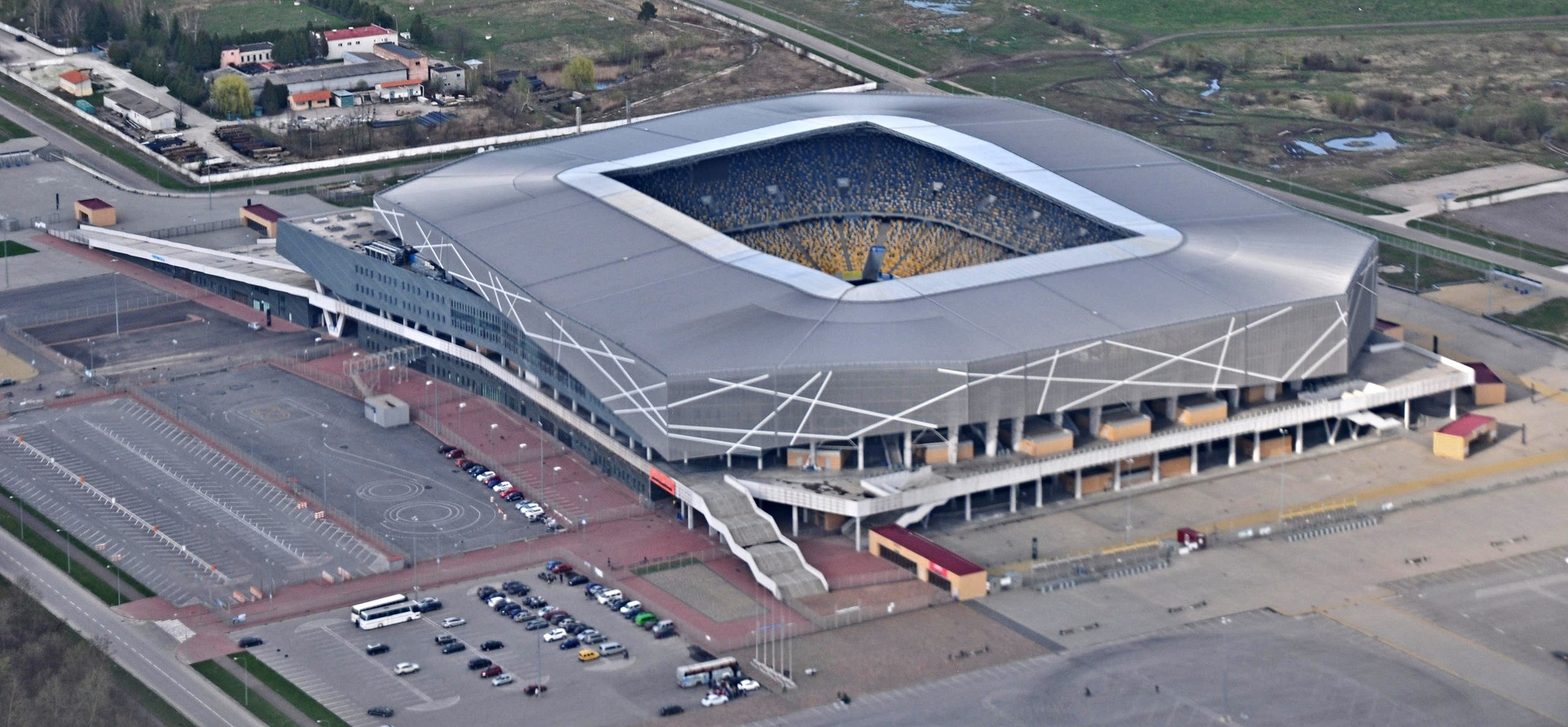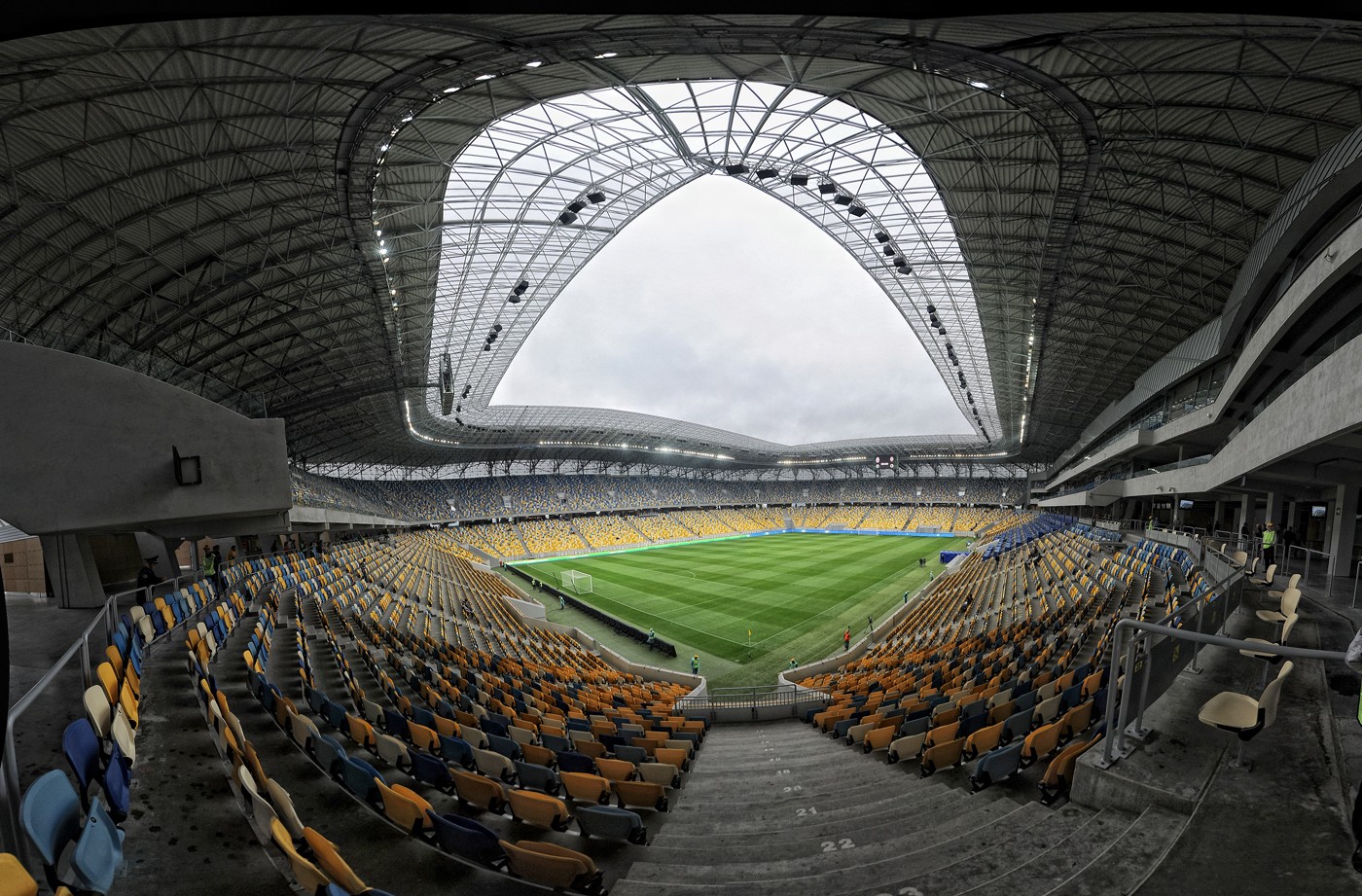Ukraine: Diplomatic spat over stadium naming
source: StadiumDB.com [MK]; author: michał
 Tensions are growing between Ukraine, Poland and Israel over the renaming of one stadium and possible renaming of another in Western Ukraine after local nationalists. Partnerships are being terminated and diplomats urge Ukrainians to change course.
Tensions are growing between Ukraine, Poland and Israel over the renaming of one stadium and possible renaming of another in Western Ukraine after local nationalists. Partnerships are being terminated and diplomats urge Ukrainians to change course.
Advertisement
During yesterday’s meeting of the Lviv Oblast Council members voted overwhelmingly (68 in favour, 7 abstentions) to support appeal by European Solidarity party members to name Arena Lviv after Stepan Bandera, leader of wartime Ukrainian ultranationalists.
The stance is only an appeal, because the oblast has no formal power in the stadium’s decision making process. As part of the National Sports Complex, the venue is operated directly under the auspice of the sports ministry and national government.
The appeal is thus more of a recommendation than a binding decision. Previous appeals, like that to transfer Arena Lviv to the local government, weren’t approved in Kyiv. Also, the idea to name the stadium after Bandera was surfacing in the past but didn’t come as an official decision.
Stepan Bandera is considered a national hero by many Ukrainians but is also extremely controversial in Poland, where he’s viewed as at least indirectly responsible for the Volhynia and Eastern Galicia massacres of 1943-45, which saw over 50,000 Polish civilians slaughtered as part of a wider ethnic cleansing campaign of majority-Ukrainian areas.
Lviv comes after Ternopil
The recommendation by Lviv Oblast deputees would possibly go largely unnoticed if it didn’t come on the heels of a different stadium decision. On March 5 the city council of Ternopil unanimously approved the renaming of their municipal stadium after general Roman Shukhevych.
Shukhevych was the commander of UPA (Ukrainian Insurgent Army), as well as one of the commanders of the preceding Nachtigall Battalion. As head of command, he was directly responsible for a series of ethnic cleansing operations, including but not limited to massacres of Polish and Jewish civilians.
It’s thus no wonder that the decision led to immediate reaction from Israel and Poland. Ambassadors of both countries in Ukraine have asked the council to revoke the decision, to no effect. As a result, a ripple effect in local politics followed, increasing tension. Polish city of Zamość broke ties with Ternopil, cancelling a mutual cultural exchange programme. Polish twin cities of Ternopil are also considering action regarding the decision.
It should be noted that honouring of both Bandera and Shukhevych is nothing new, particularly in Western Ukraine. Ironically, the Ternopil stadium is located on Bandera Ave., which is the main artery of the city. But each time further honours are awarded to them, the diplomatic tensions rise. Like on previous occasions, also this time the opportunity was used by Russian media to amplify the controversy and build stronger divide between the neighbouring countries.
Author: Michał Karaś
Advertisement

 StadiumDB
StadiumDB ©
©  ©
©  ©
©